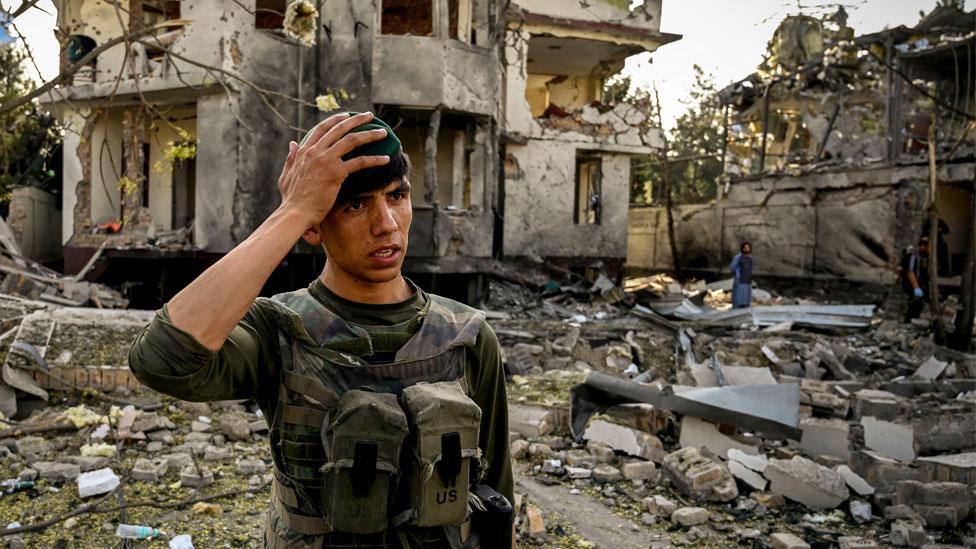Afghanistan: Tortured interpreter pleads for UK to save family
- Published
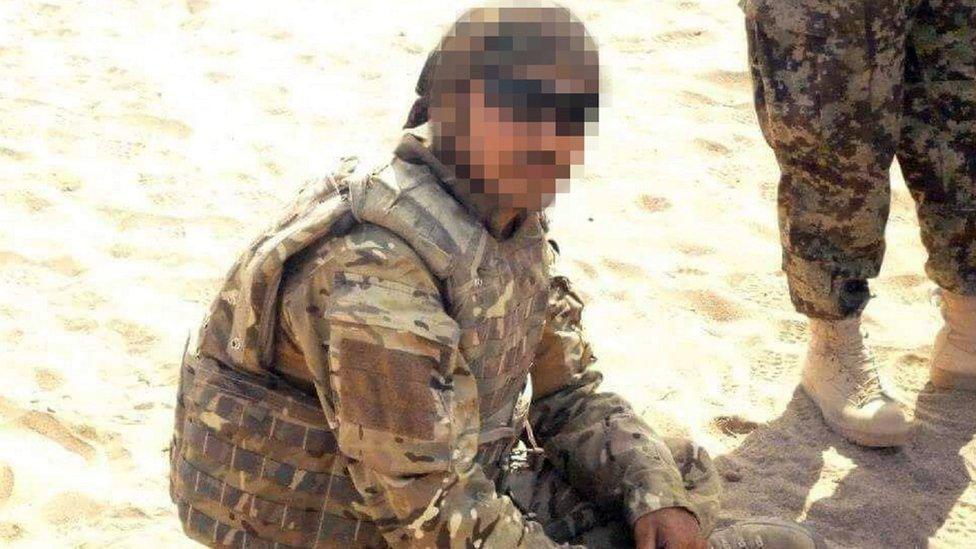
Former interpreter Mohamad fled Afghanistan after being threatened by the Taliban in 2014
A former interpreter tortured by the Taliban while working for British forces has pleaded for help to save family still trapped in Afghanistan.
Mohamad - whose second name is omitted to help protect his loved ones - said he feared for the safety of his mother, wife and siblings.
The Taliban killed his father three years ago, after he had fled to the UK.
Now a British citizen living and working in Newport, he said the situation had become desperate.
In 2009, Mohamad was working with American special forces in the Kandahar province, before joining British troops as a patrol interpreter and adviser in 2011.
But in 2014, he said the Taliban captured him, beating him and threatening to kill him for working with the British.
"[They thought I] had a lot of information... I told them: 'I'm just an interpreter, I'm not an important guy'," he told the PA news agency.
"The Taliban cut my left ear and sent a video to my mum and dad.
"My mum was shocked, she was in the hospital for a couple of days because of the blood all over my face."
Mohamad's father, who was an interpreter with the British armed forces, was asked for a large sum of money from the Taliban to stop his son from being killed, which the family could not afford.
He was later released and managed to escape the country, before eventually arriving in the UK.
Mohamad applied for a visa for his partner through the UK's Afghanistan Locally Employed Staff Ex-Gratia Scheme for husbands and wives of interpreters, but was forced to flee before they could be married.
"My dad told me: 'Don't wait, we don't have enough time for the wedding'," he said.
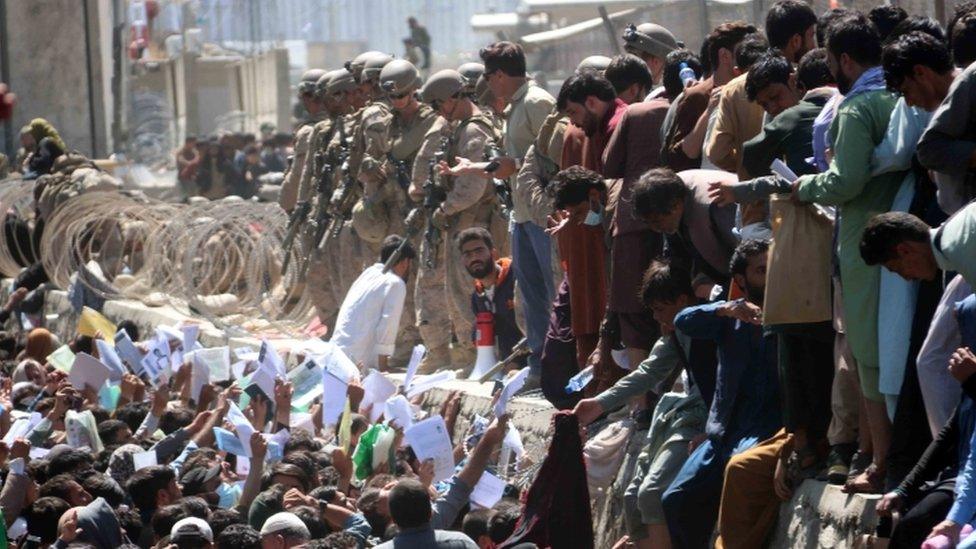
Mohamad's wife was one of the thousands who waited in vain to leave the country before rescue flights ended
Mohamad has since married his wife and for the past seven years has been trying to help her to come to the UK, but her visa application has been rejected.
In mid-August, her visa was finally approved, but she was no longer able to leave the country because of the Taliban takeover.
"I received an email from the evacuation team in Kabul that your wife should come to airport," he said.
"When my family arrived at airport there was a massive crowd of people outside the Baron Hotel.
"She waited six days outside the hotel, but unfortunately she could not make it to get inside the airport."
He said his family had moved house within Kabul to try and remain safe after the Taliban takeover.
He has been appealing to the UK government to help him start the relocation process for her and his other family members as soon as possible, as he fears for their health.
"My family thinks I'm wasting my time and I keep telling them: 'One day I'll come, the government is working'," he said.
"They think I'm lying, that I'm just a liar."
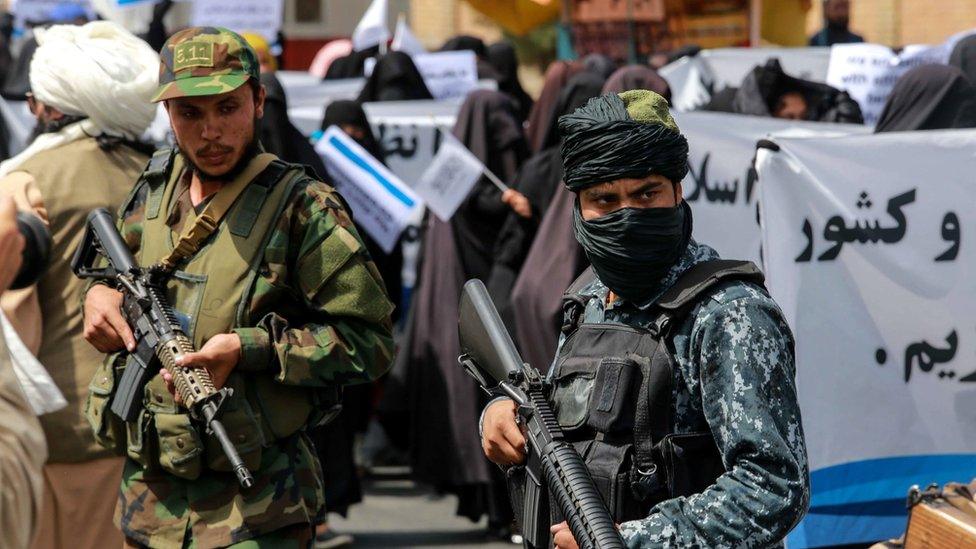
The Taliban has been in control of the country for almost a month
Mohamad said he now felt desperate and wondered whether to travel to Afghanistan himself, despite the risks posed by his past.
"I was thinking yesterday that I should walk through by foot from other countries to Afghanistan," he said.
He later told Gareth Lewis on BBC Radio Wales: "I'm safe here but I don't have a normal life.
"I have so much depression and I am trying to manage everything back in Kabul by phone... but it's really hard for me to live here and control everything in Kabul, to look after the family."
A Ministry of Defence official said: "During Operation Pitting we worked tirelessly to safely evacuate as many people out of Afghanistan as possible, airlifting more than 15,000 people from Kabul including thousands of Arap [Afghan Relocations and Assistance Policy] applicants and their dependents.
"We will continue to do all we can to support those who have supported us, and our commitment to those who are eligible for relocation is not time-limited and will endure.
"The Arap scheme remains open to applications and we will continue to support those who are eligible."
Related topics
- Published10 September 2021
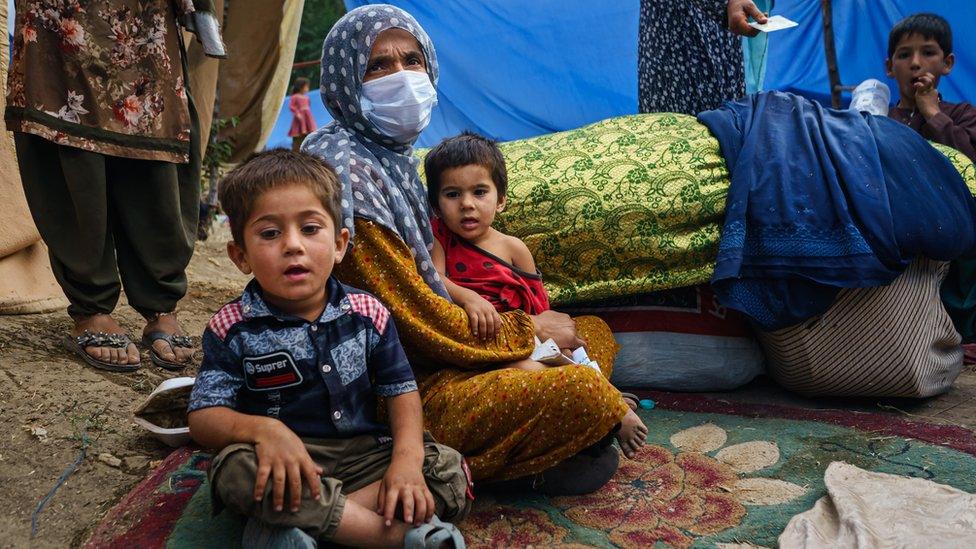
- Published31 August 2021
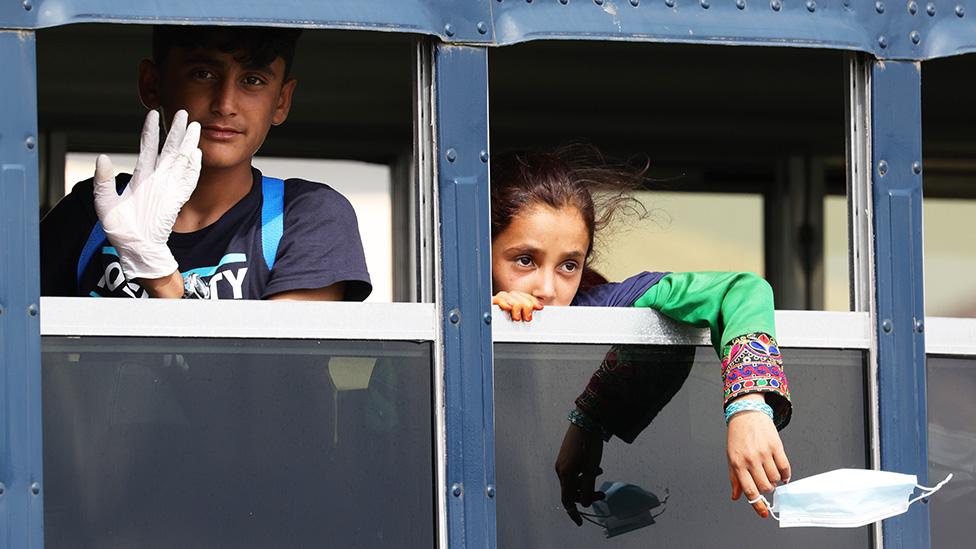
- Published2 August 2014

- Published30 August 2021
